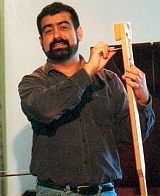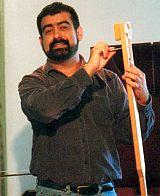
The program consisted of music by English composers, some of it written as incidental music for plays, and some for performance at home. Henry Purcell was of course well-represented, beginning with the playing of his “Round-O” from Aphra Behn’s play Abdelazer, ending with his ebullient “Lilliburlero,” and including two of his best-known songs, “Sweeter than Roses” and “If Music be the Food of Love.”

It was interesting to hear from lesser-known contemporaries of Purcell. Two of Jeremiah Clarke’s ayres, from The Island Princess, turned out to be trumpet tunes that were attributed to Purcell until late in the 20th century. From Thomas Shadwell’s production of The Tempest, we heard “Come unto these yellow sands” and “Full fathom five” by John Bannister (of note for a listener familiar with settings of the same texts later attributed — perhaps wrongly — to Purcell). Heard also from The Tempest: “Where the bee sucks” by Pelham Humphrey; and from Albion and Albanius, Louis Grabu’s “Hark how the songsters.”
Alexander’s attractive voice was well-suited to this repertoire. It was a treat to hear her singing of these songs from the plays being produced in theatres like the Dorset Garden. Her singing of Purcell’s remarkable songs was a good beginning, but I hope that she will grow into them, finding more nuanced sound and phrasing. And there were a few ensemble problems, leaving the impression that Martinez needs to pay more attention to a singer’s words than to her tune. Singing is a mixed medium.
Playing on a spinet, Martinez gave a spirited performance of Matthew Locke’s “Sett of Ayres from Melothesia.” Locke was scornful of Italian and French composers, but these ayres included standard forms — Prelude, Almain, Corant, Saraband. To play the last movement, called Rant, Martinez pulled out of the spinet what seemed to be a drawer. It was a minispinet, which was set on the top of the parent instrument and played with it, producing a decidedly different, ranting sort of sound.

